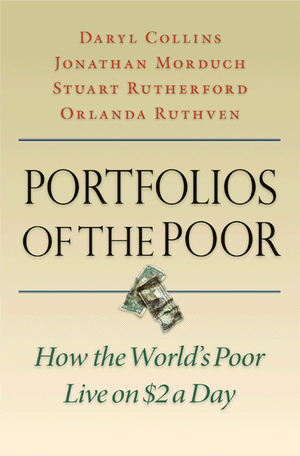 click to enlarge Today's strip is dedicated to Darrin Bell, creator of Candorville for teaching me the proper use of "dios mio." |
Wednesday, June 24, 2009
Tracking Mark Sanford
Posted by
Storm Bear
at
2:07 PM
0
comments
![]()
Labels: adultery, buenos aires, cartoons, clusterfuck, comics, humor, mark sanford, politics, webcomics
Sunday, June 21, 2009
Living On $2 A Day: An Interview With Economist Jonathan Morduch
The authors argue in their book that microfinancing should also be extended to address the needs of exceptionally low-income wage earners as well. It is their contention that poor people in the countries they researched demonstrate on a daily basis that they are responsible money managers and would also be reliable clients of microfinancing services. One of the authors, Jonathan Morduch, is a New York University ("NYU") professor of economics as well as a managing director of the Financial Access Initiative - a consortium of researchers at NYU, Harvard, Yale, and Innovations for Poverty Action. Morduch, agreed to a telephone podcast interview with me about the book and our conversation was just under twenty-six minutes. Among the topics covered was how his team earned the confidence of the people they interviewed, the informal market tools utilized by the world’s poorest in Bangladesh, India and South Africa and why he’s a proponent of extending microfinancing to the world’s poorest wage earners. Please refer to the flash media player below. This interview can also be accessed at no cost via the Itunes Store by searching for either the “Intrepid Liberal Journal” or “Robert Ellman. |
Posted by
Robert Ellman
at
1:06 PM
0
comments
![]()
Labels: Bangladesh, Darryl Collins, India, Jonathan Morduch, microfinancing, Orlanda Ruthven, Portfolios of the Poor, South Africa, Stuart Rutherford








